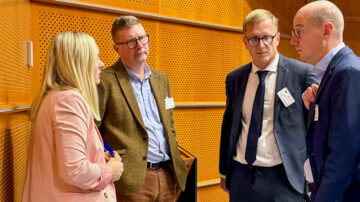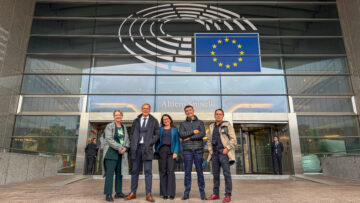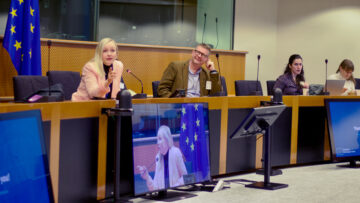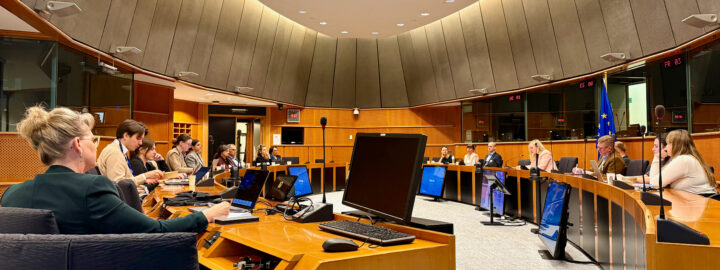Mapineq consortium identifies long-term investments and rapid-response interventions as key to reducing inequality
Sustained investments in people’s well-being—combined with swift, targeted support when difficulties arise—are essential to strengthening social equality across Europe. This is the central conclusion of Mapineq – Mapping Inequalities Through the Life Course, a three-year research project spanning European countries. At the project’s conclusion, the researchers compiled a comprehensive White Paper translating the findings into evidence-based recommendations for policymakers.
Coordinated by the University of Turku, Mapineq examined how social inequalities emerge and persist across Europe and how they spill over from one life domain to another—education, employment and income, health, and housing—over the life course. The project shows that reducing inequality requires well-designed, life-stage-specific measures that combine universal social investments with targeted interventions.
“We need both universal, long-term investments and tailored, targeted measures,” says Professor Jani Erola, Professor of Sociology at the University of Turku and Director of the INVEST Research Flagship Centre, who led the project.
During the project, researchers analysed how disadvantages linked to schooling, work, income, health, and housing intertwine over people’s life course, and how these patterns vary across local, regional, and national contexts.
The result was clear: foundations laid in early childhood matter most. Household economic insecurity and changes in family structure—such as parental separation—strongly affect children’s chances to fully benefit from later educational opportunities.

Professor Markus Jäntti (second from left) presented the policy recommendations at the closing seminar to MEP Maria Ohisalo (left), Professor Jani Erola, and Sebastian Königs, an economist at the OECD Directorate for Employment, Labour and Social Affairs and a member of Mapineq’s advisory board.
Support tailored to each life stage
To narrow educational inequalities, the researchers emphasise safeguarding stability in childhood amid family transitions and ensuring safety and security in the early years. They recommend, among other measures, combating in-work poverty by raising minimum wages, strengthening employment protection, and improving work–family balance; and universal child benefits, complemented when necessary by targeted support.
Mapineq also identified often overlooked barriers to learning. For example, air pollution near schools was found to lower academic performance, with the strongest impacts among already disadvantaged children. The researchers recommend establishing low emission zones, introducing congestion charges, and investing in healthier school infrastructure across Europe.
As young people transition from school to work, health is decisive. Young adults in poor health have, on average, over 30 percentage-points higher probability of being Not in Education, Employment, or Training (NEET) than their very healthy peers. Health also emerged as the single strongest determinant of life satisfaction. The project therefore recommends low-threshold mental-health and health check-ups for upper-secondary students.
Young people also need clear pathways to stable employment and affordable housing. The researchers encourage adding flexibility in working life and providing active labour market services especially for older women. Employment protection should be designed so it does not hinder re-employment, and workers in physically demanding jobs should have flexible retirement-age options.

Members of the Mapineq consortium discussed drivers of inequality and ways to mitigate their impact at different life stages. Speakers at the closing seminar included Professor Melinda Mills (University of Oxford), Professor Jani Erola (University of Turku), Deputy Executive Secretary Daniela Vono de Vilhena (Population Europe), Professor Fabrizio Bernardi (UNED, Spain), and Project Manager Mijail Figueroa González (University of Turku).
Closing seminar unveiled the White Paper with policy recommendations
Mapineq presented its research results and related policy recommendations at a closing seminar at the European Parliament in Brussels in September 2025. Guest speaker MEP Maria Ohisalo (Greens/EFA) noted that while EU Member States have committed to reducing inequality, wealth, opportunities, and well-being remain unevenly shared in Europe.
“Delivering on the European Pillar of Social Rights is an absolute imperative for the EU. Now if ever, in a volatile geopolitical situation and societies in a transition, we must be able to deliver a strong, social Europe that leaves no-one behind. The success of how we run our societies, is measured in how equally we treat everyone, and how we ensure that our structures and policies even out the inequalities that remain,” Ohisalo said.

“Research plays a crucial role in this. At this moment in time, which is characterized by misinformation and ideological divisions, harmonised, consistent and reliable data and researched information is at the core of making informed choices and policies that are fit for purpose ”, MEP Maria Ohisaslo said in the closing seminar of Mapineq.
The Mapineq consortium—University of Turku (coordinator), University of Groningen, National Distance Education University (UNED), WZB Berlin Social Science Center, Stockholm University, Tallinn University, Population Europe, and the University of Oxford—ran from 2022 to 2025. The project includes 8 partners located in 7 European countries.
Erola. J., Vono de Vilhena, D., Kilpi-Jakonen, E. & The Mapineq Team (2025). White Paper on Social Inequalities in Europe: From Early Childhood to Retirement — Findings and Recommendations from the Horizon Europe Project ‘Mapping Inequalities Through the Life Course’ (Mapineq).

